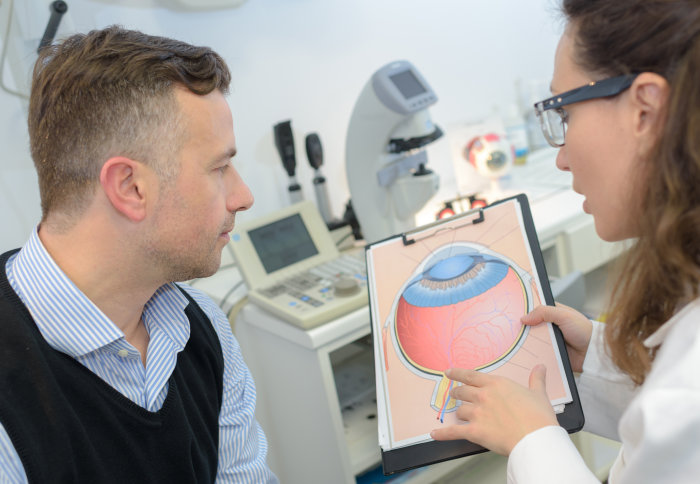AI-supported test as new glaucoma biomarker

A new study shows that an AI-aided algorithm combined with recently developed technology was able to predict progressive glaucomatous damage earlier.
There is an unmet need in neurodegeneration for biomarkers that can accelerate and de-risk drug development. In glaucoma, using the existing endpoints, clinical trials typically last more than 2.5 years, with economic implications with regard to time and cost.
A recently developed technology called DARC (Detection of Apoptosing Retinal Cells) identifies cellular level disease activity in the retina. It has been developed through funding from the Wellcome Trust.
In the newly published study(1), a group led by Professor Francesca Cordeiro, from Imperial College London, describes an AI-aided algorithm which when combined with DARC was able to predict progressive glaucomatous damage 18 months before that seen with the current gold standard OCT retinal imaging technology. These results were from a Phase II clinical trial on ICORG Western Eye Hospital involving 120 patients, of which 40 healthy controls and 20 glaucoma patients were analysed in this study.
Professor Cordeiro, Professor of Ophthalmology at Imperial College London and its NHS Trust (ICHNT), says about the UCL-sponsored trial: “These results are very promising as they show DARC could be used as a biomarker when combined with the AI-aided algorithm. What is really exciting, and actually unusual when looking at biological markers, is that there was a clear DARC count threshold above which all glaucoma eyes went on to progress.”
Biomarkers are extremely important in evaluating potential therapeutics. If a treatment alters the biomarker, it may serve as a surrogate endpoint for evaluating the clinical benefit of the therapy. They may also be used, as the authors suggest in this study, to triage high-risk patients to provide an enriched population for clinical trials.
First author Dr Eduardo Normando (Imperial College London and Western Eye Hospital Imperial College Healthcare NHS Trust) said: “Being able to diagnose glaucoma at an earlier stage, and predict its course of progression, could help people to maintain their sight, as treatment is most successful if provided at an early stage of the disease. After further research in longitudinal studies, we hope that our test could have widespread clinical applications for glaucoma and other conditions.”
Using DARC to identify patients at risk of rapid disease progression is not just confined to glaucoma, and the team hope soon to report on other patient groups studied in the Phase II trial, including macular degeneration, multiple sclerosis and dementia. Prof Cordeiro is similarly planning to investigate DARC as a biomarker of lung and liver diseases at Imperial.
DARC is being commercialised by Novai, a newly formed company https://www.novai.co.uk of which Professor Cordeiro is Chief Scientific Officer.
1. Normando E.M. et al. A CNN-aided method to predict glaucoma progression using DARC (Detection of Apoptosing Retinal Cells) Expert Review in Molecular Diagnostics. 2020. https://doi.org/10.1080/14737159.2020.1758067
Article text (excluding photos or graphics) © Imperial College London.
Photos and graphics subject to third party copyright used with permission or © Imperial College London.
Reporter
Benjie Coleman
Department of Surgery & Cancer